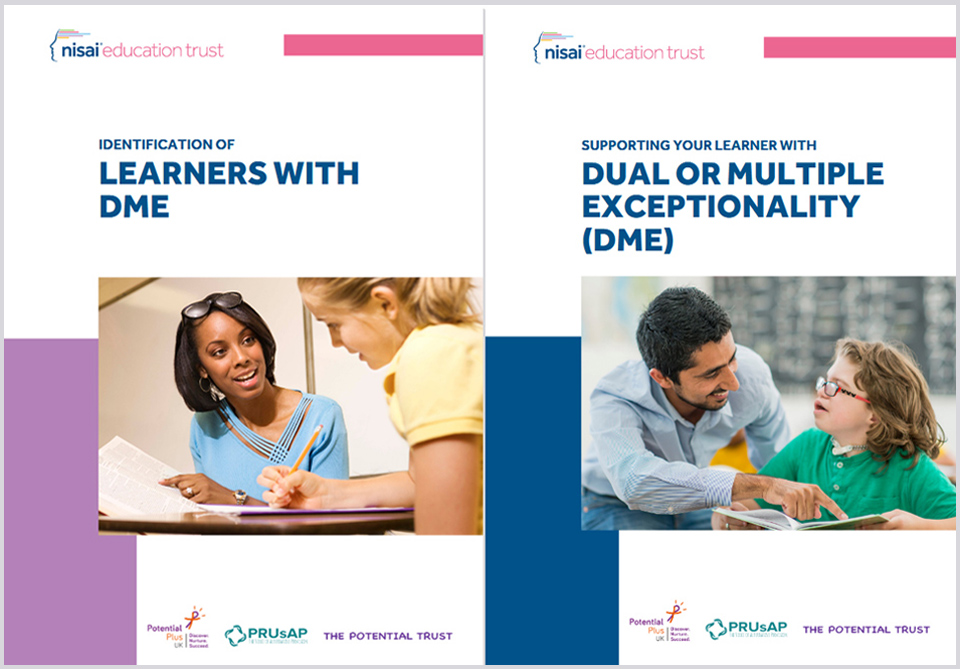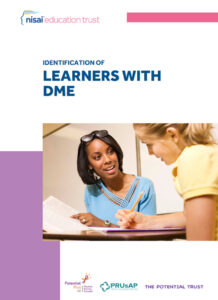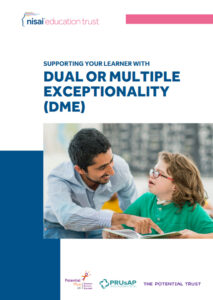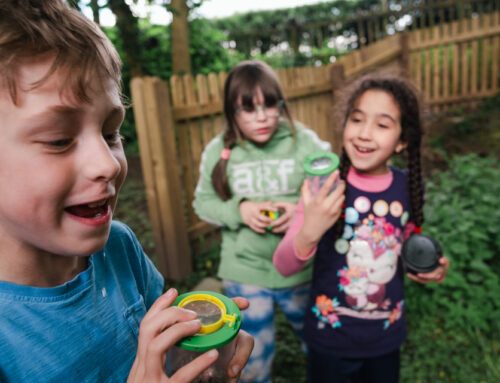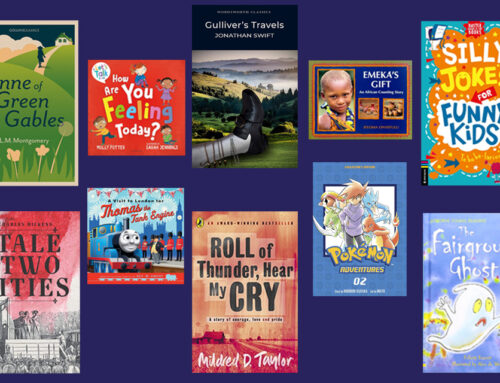Dual or multiple exceptionality is the term used to describe someone who has both high ability (high learning potential / gifted / more able) and some form of special educational need or disability. Dual or multiple exceptionality can be difficult to identify as special educational need/disabilities can mask high ability and high ability can mask some disabilities such as Dyslexia, ADHD, sensory issues. Autism Spectrum Disorder.
When unidentified, misunderstood and unsupported, many learners with DME can develop emotional and behavioural traits that may exclude them from mainstream education. By accurately identifying DME and factoring support for it into their provision, alternative education providers can help to reverse these traits.
Potential Plus UK has worked in partnership with Nisai Education Trust, The Potential Trust and PRUsAP to produce two free booklets about dual or multiple exceptionality (DME) for alternative provision schools and providers.
Although these booklets were developed with alternative provision in mind, they are useful for understanding and supporting DME learners in all educational contexts.
Supporting Your Learner with Dual or Multiple Exceptionality (DME) Once you have identified a learner with DME, tailored and strength-based approach plans already developed by alternative education providers need to be adjusted to ensure that additional information on DME is factored into the provision. This booklet outlines SMART goals and case studies for areas such as: nurturing high learning potential, supporting cognitive style, encouraging academic achievement, fostering interpersonal relationships, promoting intrapersonal understanding. It helps to identify how to prioritise and to work with the learner to understand DME and have a voice in their learning.

